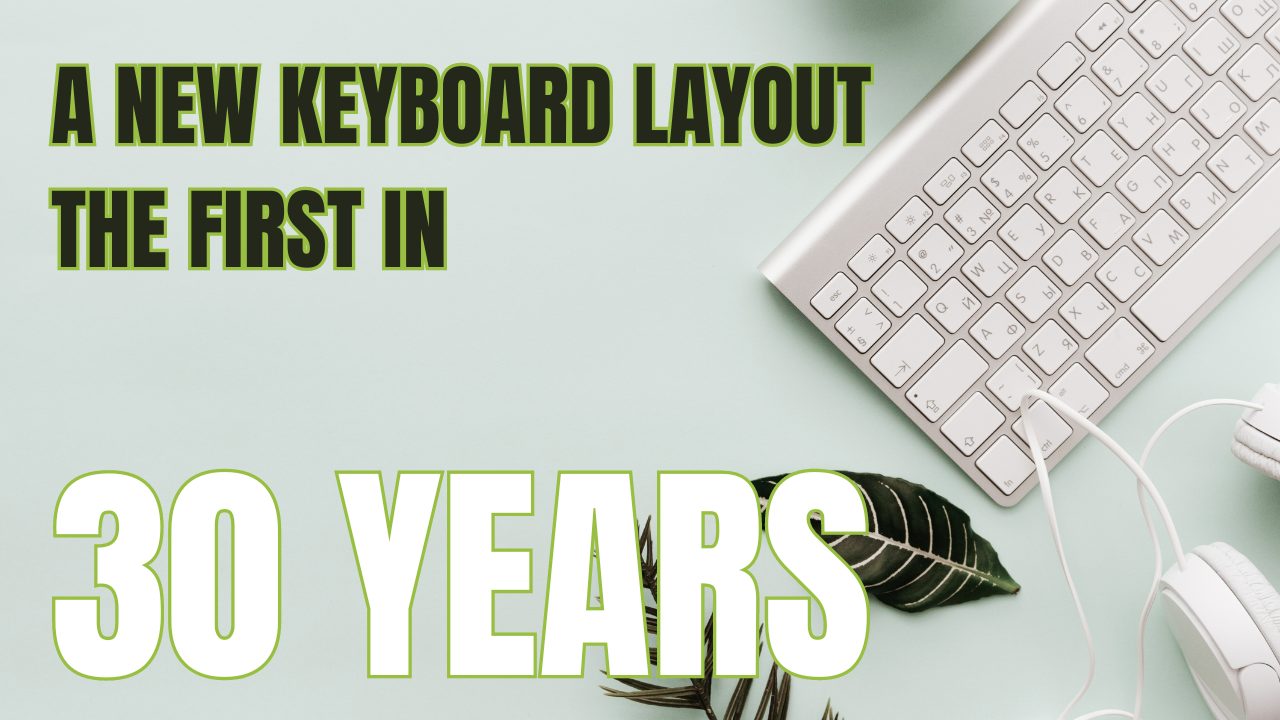New Keyboard Layout Challenges Microsoft Co-Pilot Key: Innovative Design Emerges
Microsoft is introducing a new addition to the keyboard layout on Windows 11 laptops and PCs – a dedicated Copilot key. This key aims to provide users with quick and easy access to Microsoft’s AI-powered Copilot experience, marking the first significant change to the keyboard layout in almost 30 years. The innovative Copilot key will join the Windows key as one of the most essential keys on a PC keyboard.
With Microsoft’s continued investment in and development of AI-powered tools and services, the addition of the Copilot key illustrates their commitment to enhancing user experiences. This key will seamlessly bring the Copilot experience into various Microsoft applications, enabling users to have an AI companion that assists with tasks, improves workflow, and increases productivity.
New Windows 11 PCs and laptops from Microsoft’s partners will soon start shipping with the new Copilot key, making AI assistance more accessible and convenient for users worldwide. As a core component of the PC keyboard, the Copilot key aims to revolutionize how people interact with Windows and its various applications.
Key Takeaways
- The dedicated Copilot key is a significant change in the Windows keyboard layout
- The key provides seamless access to AI-powered Copilot features in Microsoft applications.
- Newly manufactured Windows 11 laptops and PCs will include the innovative Copilot key.
Overview of Microsoft Co-Pilot Key
Design Concept
In our quest to make technology more intuitive and user-friendly, we are excited to introduce the Microsoft Co-Pilot Key. This new addition to the standard Windows PC keyboard aims to provide seamless integration with the AI-powered Co-Pilot features in Windows 11. With nearly 30 years since the introduction of the Windows key, the Co-Pilot Key is set to redefine how people interact with their PCs.
The Co-Pilot Key will be located strategically on the keyboard, replacing the right Ctrl key. This intelligent design ensures that users can conveniently engage with AI features and streamline their day-to-day tasks.
When the Co-Pilot Key is pressed, the Co-Pilot program will be invoked, offering users access to a range of time-saving features such as:
- Smart Task Completion: Automating routine tasks
- Intelligent Assistance: Providing context-relevant suggestions
- Resource Optimization: Automatically allocating resources for optimal performance
Target Audience
The primary target audience for the new Co-Pilot Key encompasses:
- Professional users: Businesses and organizations that want to enhance their employees’ productivity and foster a better user experience
- Casual users: Home users who could benefit from more intuitive and efficient computing experiences
- Educational institutions: Schools and universities promoting seamless technology integration as part of their educational program
By providing the Microsoft Co-Pilot Key, we seek to empower users across various sectors, ensuring that they can seamlessly access the AI capabilities baked into Windows 11. Ultimately, the Co-Pilot Key aims to revolutionize our interaction with technology, making the computer experience more accessible and responsive to users’ needs.

Technical Specifications
Key Layout
The new keyboard layout for Windows 11 laptops and PCs includes a dedicated key for Copilot, Microsoft’s AI-powered assistant. This key represents the most significant change to the standard Windows keyboard in nearly 30 years. Situated alongside the classic Windows key, the Copilot key provides users with quick and seamless access to the Copilot experience within various Microsoft apps.
Compatibility
Regarding compatibility, the Copilot key is designed for Windows 11 laptops and PCs. It should work seamlessly with Microsoft’s latest operating system and provide an integrated experience across the company’s suite of products and applications. While the key’s primary function revolves around activating the Copilot experience, it may also offer context-specific features or commands depending on the current application.
Connectivity Options
As with most modern keyboard options, the Copilot-enabled keyboards will be available in wired and wireless. Users can choose the connection type that best suits their needs and preferences. Common connectivity options include:
- USB: Wired keyboards with a USB connection offer a reliable and consistent experience and are compatible with most laptops and PCs.
- Bluetooth: Wireless keyboards leveraging Bluetooth technology provide a more flexible and clutter-free workspace, albeit with potential battery life considerations.
User Experience
Typing Efficiency
With the introduction of the new Copilot key on Windows 11 keyboards, we expect users to experience a more efficient and seamless way of interacting with Microsoft’s AI-powered Copilot. Users can quickly access Copilot within various applications without interrupting their workflow by having a dedicated key for this AI companion. This means that users can now rely on the AI assistant for tasks such as:
- Autocompletion when typing
- Contextual help with software features
- Searching and exploring documents
Ergonomic Benefits
In addition to enhancing typing efficiency, the new keyboard layout aims to provide ergonomic advantages for users. By placing the Copilot key conveniently on the keyboard, we anticipate reduced hand and finger movements when accessing the AI companion. This strategic positioning of the key is designed to minimize strain on users’ wrists and fingers during extended usage periods. While it might take some time to get used to the new layout, users are likely to experience the following benefits:
- Reduced hand and finger fatigue due to optimized key placement
- Increased comfort when accessing the Copilot key
- Faster adaptation to the new layout through muscle memory
In summary, introducing the new Copilot key on Windows 11 keyboards aims to offer users both typing efficiency and ergonomic advantages, ultimately enhancing their overall user experience.
Integration with Operating Systems
Windows Integration
As Microsoft continues to enhance its AI-powered Windows Copilot experience, a new Copilot key is being introduced to PC and laptop keyboards. This dedicated key provides quick access to the Copilot feature, streamlining its integration with the Windows operating system. Nearly 30 years ago, we witnessed the introduction of the Windows key, which became a core part of the PC keyboard. Similarly, we expect the Copilot key to play a significant role in users’ interactions with Windows.
The Copilot key will generally replace the Menu key on the right-hand side of the space bar, between the right Alt key and the Left Arrow navigation key on laptops. For full-size keyboards, the placement might vary. Naturally, the key is intended to work seamlessly with the Windows operating system, particularly Windows 11, which strongly emphasizes AI-powered features.
Note that the phased rollout of Windows Copilot across different regions may initially lead to the Copilot key launching Windows Search in some areas. However, it is expected to transition to its primary function as Copilot becomes available worldwide.
For users eager to customize their keyboards, it is possible to remap the Copilot key in Windows 11 by leveraging the Keyboard Manager under the PowerToys settings. This customization lets you transform other keys, such as Alt or Apps/Menu, into the Copilot key.
Cross-Platform Support
As it stands, the introduction of the Copilot key is primarily geared toward Microsoft’s Windows ecosystem. Although the Copilot key’s cross-platform support remains speculative at this stage, it is not unusual for other operating systems to adopt similar functionality in the future. Market trends and user demand often drive innovations like these, so we may see the Copilot key’s features integrated into other operating systems as AI technology becomes more prevalent across platforms.
In the meantime, hardware manufacturers may support the Copilot key on third-party keyboards, enabling users to take advantage of this new feature beyond their devices’ pre-installed keyboards. As a result, we can expect to see a symbiotic relationship between software and hardware, further promoting AI-driven tools such as the Copilot key.
Market Analysis
Potential Impact
The introduction of the Microsoft Co-Pilot key on new keyboards brings a significant change in the Windows experience. After 30 years of relatively stable keyboard layouts, this major shift showcases Microsoft’s confidence in the Co-Pilot, an AI-powered companion integrated into its applications. The key provides quick access to the Co-Pilot experience, enhancing productivity and fostering innovation.
- Ease of access: With a dedicated key, users can conveniently access the Co-Pilot features, streamlining their workflow.
- Enhanced capabilities: Co-Pilot’s AI-powered nature offers potential improvements for various tasks, potentially transforming how users interact with their PCs.
- Increased adoption: As Microsoft partners ship new PCs and laptops featuring the Co-Pilot key, its visibility and user base are expected to grow.
Competitor Comparison
Let’s take a look at how the addition of the Microsoft Co-Pilot key compares to other popular keyboard layouts in the industry.
| Competitor | Unique Features | Key-based Access |
|---|---|---|
| Apple macOS | Touch Bar on select MacBook models | No dedicated AI key |
| Google Chrome OS | Google Assistant access and Chrome-specific keys | Google Assistant key on select models |
| Linux | Varies depending on distribution and desktop environment | Limited to specific configurations |
While Apple’s macOS provides the Touch Bar, a context-sensitive input interface on select MacBook models, it doesn’t offer a dedicated key for AI assistance. Google Chrome OS does include Google Assistant access, but only specific devices come equipped with the dedicated key. In Linux distributions, keyboard layouts are highly customizable but generally lack built-in AI keys.
By providing a dedicated Co-Pilot key on Windows 11 keyboards, Microsoft takes a significant leap forward in incorporating AI assistance in user interfaces.
Accessibility Features
We believe that technology should be inclusive and accessible to everyone. With the introduction of the new Copilot key on the Windows 11 keyboard layout, we aim to enhance the accessibility aspect of our devices. This section will discuss some of the key accessibility features enabled by the Microsoft Co-Pilot key.
The Copilot key provides quick access to Microsoft’s AI-powered Windows Copilot experience. This AI assistant is designed to make it easier for users with limited dexterity or other disabilities to complete day-to-day tasks on their computers more efficiently. By simply pressing the Copilot key, users can engage with the Copilot in the Windows experience, making it a seamless and user-friendly way to utilize accessible features.
Furthermore, the Co-Pilot key supports a range of input methods, such as voice recognition and eye-tracking. These features allow users with diverse abilities to interact with Co-Pilot in a way that best suits their needs. For instance, someone with limited mobility can utilize voice commands, while individuals with speech impairments might find eye-tracking a more effective input method.
In addition to input methods, Co-Pilot offers assistance with various tasks that can be challenging for users with disabilities. Some of these tasks include:
- Document formatting and editing
- Writing emails and messages
- Accessing and organizing files
By integrating various accessibility features into a single dedicated key, we aim to make the Windows 11 keyboard layout more inclusive and user-friendly for everyone. We believe that the Copilot key is a valuable addition to our lineup, promoting accessibility and making it easier for all users to engage with AI features in their daily interactions with Windows 11.
Future Developments
Software Updates
As we continue to improve and expand the functionality of the Microsoft Co-Pilot Key, periodic software updates will be released to enhance user experience. Alongside AI improvements, these updates aim to facilitate new and exciting features within the Co-Pilot ecosystem. Some anticipated updates include:
- Integration with more Microsoft apps: Co-Pilot’s compatibility will be extended to additional applications, making it even more convenient for users immersed in the Microsoft ecosystem.
- Customization options: Users can customize their Co-Pilot experience, tailoring its functionality to better suit their needs.
- Multi-language support: Co-Pilot will become accessible to a broader audience with support for various languages.
We believe these advancements will further solidify Co-Pilot’s position as an invaluable tool for users on the Windows platform.
Hardware Iterations
We understand the importance of hardware evolution in parallel with software advancements. As a result, we’ll be working closely with our partners to ensure new keyboards and input devices readily support the Co-Pilot Key. Some potential developments in hardware additions are as follows:
- Ergonomic designs: Incorporating user feedback, keyboard designs will be more ergonomic, ensuring comfortable access to the Co-Pilot key.
- Adaptive layout: Keyboards may feature layouts that can intelligently adapt to the user’s preferences and app usage, optimizing the location and function of the Co-Pilot key.
- Built-in hardware support: Certain laptops and tablets will have a dedicated Co-Pilot key on their integrated keyboards, making it easily accessible for tablet users.
Through these software updates and hardware iterations, we strive to keep up with the pace of innovation while providing users with features that elevate their computing experience.
Pricing and Availability
As we analyze the introduction of the Microsoft Co-Pilot Key in new keyboard layouts, it is crucial to discuss its pricing and availability. Since this innovative key is expected in different PCs and laptops made by Microsoft’s partners, customers will have several options.
The new Co-Pilot key will start emerging on Windows 11 PCs and laptops, including the upcoming Surface devices, in the coming months. The prices for these products may vary based on the specific model, brand, and features included. However, expect the price range to accommodate various customer segments, from budget-conscious to premium enthusiasts.
When discussing the standalone Microsoft keyboard with the AI Co-Pilot key, it remains unclear whether it will be available for purchase separately or sold only bundled with PCs and Laptops. As the release date approaches, we anticipate Microsoft’s announcement of the pricing and distribution strategy for these keyboards.
We recommend watching for future announcements from Microsoft and its partners to stay informed about the pricing and availability details of the new Microsoft keyboard featuring the AI Co-Pilot key and the respective PCs and laptops. Doing so lets you make an informed decision before incorporating this revolutionary technology into your daily computing experiences.

 55 Park Road,
55 Park Road, 




